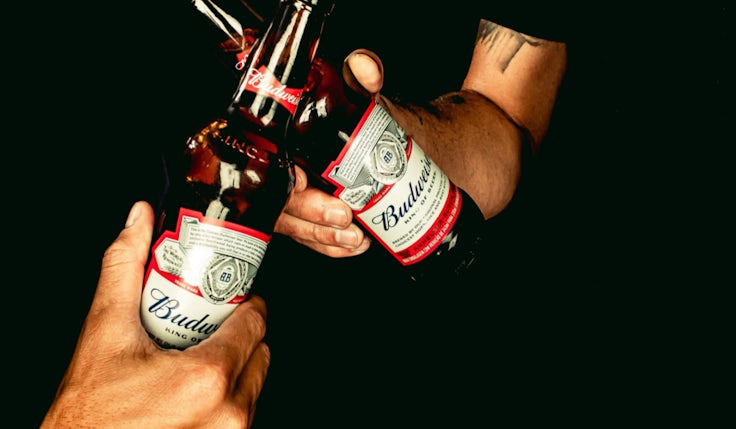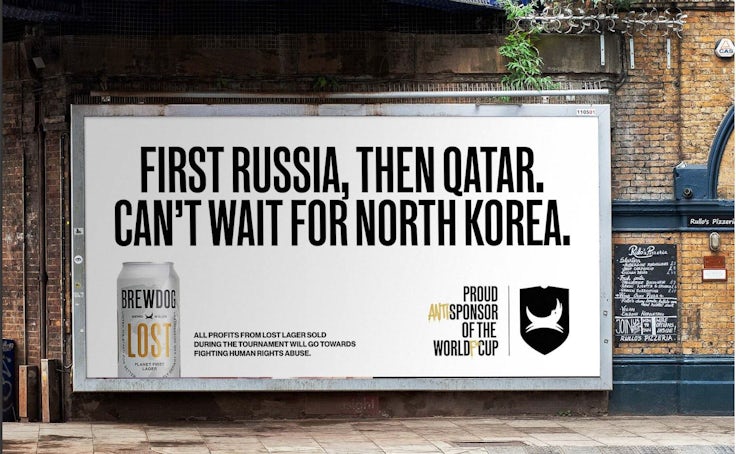‘This is awkward’: World Cup sponsor Budweiser banned from selling beer in stadiums
Budweiser is one of the key brands sponsoring the World Cup, but a last minute decision to ban alcohol in Qatar’s stadiums may leave it questioning the future of the partnership.

Qatar has banned alcohol sales inside stadiums during the World Cup less than 48 hours before the tournament is due to begin.
The decision puts FIFA World Cup sponsor Budweiser in a difficult position as the brand had been given exclusivity to sell beer in stadiums during matches.
In a now-deleted tweet from its official account, the AB InBev-owned beer brand tweeted simply, “Well, this is awkward…”.
AB InBev, which pays an estimated £60m over four years for Budweiser’s sponsorship, acknowledged “some of the planned stadium activations cannot move forward due to circumstances beyond our control”, but said it was still looking forward to other activity.
Tournament organiser FIFA confirmed the decision to ban alcohol sales in the stadium earlier today. “Following discussions between host country authorities and FIFA, a decision has been made to focus the sale of alcoholic beverages on the FIFA Fan Festival, other fan destinations and licensed venues, removing sales points of beer from Qatar’s FIFA World Cup 2022 stadium perimeters,” it said.
The fallout of Qatar’s decision could include tougher negotiations for [Budweiser’s] contract renewal for 2026.
Conrad Wiacek, Global Data
In the statement it also thanked Budweiser parent company AB InBev for its “understanding”, and said sales of Bud Zero, the brand’s alcohol-free lager, would be unaffected.
GlobalData’s head of sport analysis Conrad Wiacek says the move to pull stadium alcohol sales “risks alienating” the brand, which is one of FIFA’s key sponsors. He notes the brand’s partnership with football’s governing body is up for renewal after this World Cup.
“The fallout of Qatar’s decision could include tougher negotiations for [Budweiser’s] contract renewal for 2026, where FIFA would have typically expected to double the current sponsorship fee,” he says.
Marketing Week columnist and author Harry Lang, says this is a “new low” for what he calls “the least anticipated World Cup in history”.
“The biggest surprise is the timing – Bud would have signed this deal years ago, so what induced the hosts to remove the last scrap of joy for parched fans just before kick off? Nothing about this tournament makes sense, so I guess we shouldn’t be surprised,” he says.
When will sponsors realise they can’t win at the Qatar World Cup?
Lang adds: “Now Budweiser’s lawyers will be bathing in the tears of its brand team.”
Qatar has strict laws in place around alcohol consumption, with it only permitted in certain venues. However, when it was awarded the World Cup in 2010 it had agreed to relax those rules for the tournament.
While the decision may have left sponsor Budweiser feeling short-changed, GlobalData’s Wiacek suggests the brand will likely think twice about immediately pulling away from its FIFA partnership, especially with the next 2026 World Cup being hosted in North America.
“Budweiser will be cautious to burn its bridges with the governing body, as the 2026 US tournament will be highly prized. Going elsewhere would open up opportunity for other alcohol brands in its wake,” he says.








Comments